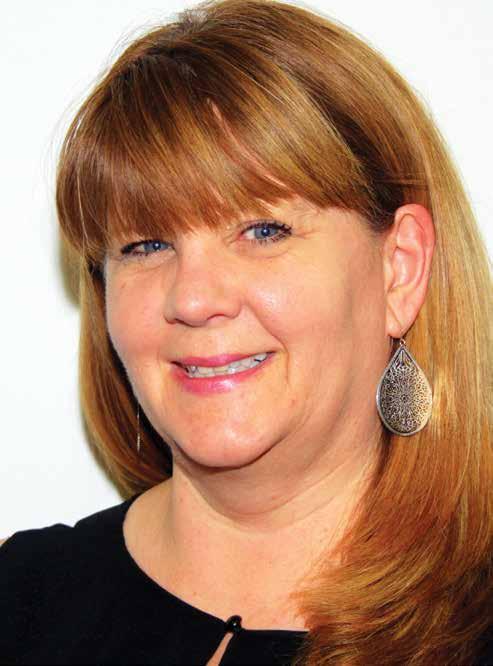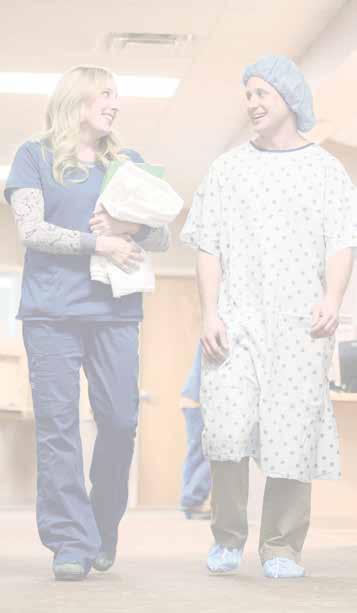
3 minute read
A Ministry of Support A Ministry of Support
By Kasha Stoll
Veronica Ciurleo remembers what it is like to be homeless and broken, which is why she does everything she can to help improve the lives of homeless people in West Duluth.
Ciurleo is the founder and CEO of Duluth Harbor Mission, an organization that provides food, shelter and support to more than 500 people every month.
From humble beginnings
“I had nothing,” said Ciurleo, referring to when she was in her 40s and had to move back in with her parents after a divorce. She prayed to God and tried to figure out what to do with her life.
“I was really burdened by what I saw in Duluth,” Ciurleo said. “I could see the downtrodden and the addiction issues. It was all out there in plain sight. I got a red rider wagon and started doing a street ministry.”
That ministry included providing basic needs like food and toiletries to homeless and addicted people. A woman from Ciurleo’s church was moved by Ciurleo’s street ministry and gifted her almost $12,000 so she could continue.
No matter how much Ciurleo did, though, she couldn’t help everyone with her one-woman ministry.
“The need out west was huge,” she said. “We have great centers in downtown Duluth, but there was nothing in [the West End]. I thought perhaps we could start a mission where I was doing my street ministry.”
Ciurleo and a group of like-minded people built a board of directors for the Duluth Harbor Mission in 2016. Ciurleo was hired as the executive director, and the mission served its first hot meal out of a local church basement in September of the same year.
Once again, someone stepped up to help expand
Ciurleo’s ministry.
“A lady saw our vision,” Ciurleo said. “She took me to dinner and showed me photos of buildings for sale in Lincoln Park. Then she asked: ‘What sticks in your heart? I want to buy it for you.’”
The woman bought the property at 2910 West 3rd Street and charged the Duluth Harbor Mission $100 a month in rent. The woman later sold the building to a local pastor and his wife, who agreed to let Ciurleo and the mission stay.
Big goals
One of Ciurleo’s goals for the mission was achieved in February when Millie’s House of Hope opened as a transitional program for homeless women who have completed addiction treatment or incarceration. Women can stay at the house for up to one year and receive help with personal, financial and work development. The women can also receive help in their efforts to reconnect with their children.
Ciurleo’s next big goal is to develop a long-term program that provides immediate and functional assistance to addicts who want to get clean. Current programs require people to make an appointment, take an assessment test, get their insurance in order and wait for a bed.

“They don’t have time like that,” Ciurleo said. “When a heroin addict is ready to get help, by the time all that gets taken care of, they are back on the street.”
Getting immediate help is only part of the problem, though.
“If a person has been living on the streets for 15 years in the trap of addiction, they are lost,” Ciurleo said. “My own son has been using since he was 14. He is 33 now. That is a huge gap of no life skills.
“You can’t go to a 30-day facility and then be sent out and expect to live. You can’t do that in 90 days. You don’t know how to balance a check book or grocery shop. We need to do more for these people.”
While Ciurleo has big goals, she also faces big challenges when it comes to raising money. The Duluth Harbor Mission is faith based and tries to help people through the gospel of Jesus Christ. For that reason, the mission doesn’t receive any government funding.
“We want to keep God as our authority,” Ciurleo said. “We are funded through private donations and local churches.”
Huge rewards
Ciurleo struggled to explain the rewards of her ministry and the work done at the mission. Instead, she told a story.
“I came to work one day, and there was a woman at the door,” Ciurleo said. “She was in a bad way, and she was crying. She said: ‘I wasn’t always like this. I used to be president of the PTA at school.’”
The two women went inside the mission and talked about the homeless woman’s immediate needs. When Ciurleo reached out to touch the woman’s hand, the woman pulled away. She looked at Ciurleo and said, “You’re going to touch me?”
Ciurleo said yes and reached out again. The women touched and then prayed together.
“She left with joy and hope because she was found to be touchable. Someone actually cared,” Ciurleo said. “The shame and guilt and humiliation that comes with this lifestyle is huge. My reward is when they see that they have value.” D
Wi th in ou rw alls, we ma ke ap ositiv ei mpa ct on pa tien ts ’l iv es. Fr om to ta lc om fo rt to sta te -o f- th e-art su rg ery to sa ving out-o fpo ck et co sts. Ou tp at ien ts ur ge ry ex ce llenc e –i t’ sa ll in ad ay ’s wo rk.










